 Research Update
Research Update
16
NovemberOn November 16, 2019, Beijing Academy of Development and Strategy, RUC (hereinafter referred to as the "BADS") held the "Capital City Development Forum 2019" in the No. 116 Conference Hall, Chinese Classics Building, RUC. With the theme of "Metropolitan Development and Urban Renewal", this forum invited many domestic experts from Tsinghua University, Renmin University of China, Chinese Academy of Social Sciences, China Academy of Urban Planning and Design, and Beijing Municipal Institute of City Planning and Design, as well as international experts and scholars from the United States, Japan, the United Kingdom, France, Germany, the Netherlands, Australia, India, Pakistan, etc. for the purpose of discussing government of capital cities all over the world.

Professor Jin Nuo, Party Secretary of RUC and Dean of the BADS, attended the meeting and delivered a speech. Professor Liu Yuanchun, Vice President of RUC, presided over the opening speech. Professor Yan Jinming, Director of Office of Research, RUC and Executive Director of the National Academy of Development and Strategy, attended the meeting and presided over the scholars' forum. Zhang Jie, Associate Dean of the BADS, RUC and Professor of the School of Economics, Li Wenzhao, Associate Dean of the BADS, and Professor of the School of Public Administration and Policy, RUC, Hou Xinli, Associate Dean of the BADS, RUC, attended the meeting. More than 200 participants, including scholars from inside and outside the universities, students, government officials, media and representatives from all walks of life also attended the meeting.

Professor Jin Nuo, Party Secretary of RUC and Dean of the BADS, delivered a speech.
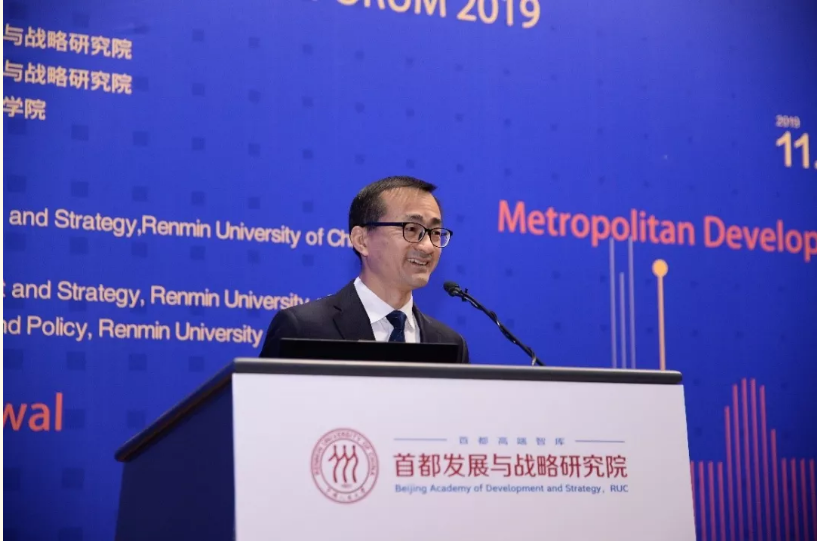
Liu Yuanchun, Vice President of RUC presided over the opening speech.
Jin Nuo said that the BADS is a high-end think tank in the capital based on the superior disciplines of the Renmin University of China. Since its establishment, it remains focused on the governance of the capital cities and has achieved outstanding results. He stressed in particular that the capital is a country's political center and a center for international exchanges. There are several points that need to be firmly grasped in the research of the capital governance think tank. First, abide by the laws of urban development and highlight leading role of urban planning, especially in terms of maintaining the scientificity, seriousness and authority of urban planning. Second, balance the relationship between development and livability, optimize the development of the metropolitan region and build an effective governance system for super-large cities matching the functions of the capital. Third, study the problems encountered when governing "urban disease", solve the problems during urban development while overcoming the "think tank disease", i.e. "more tanks and less thinks", maintain close ties with the government, and create a forward-looking think tank that is "in sight and available".
Scholars’ Forum I
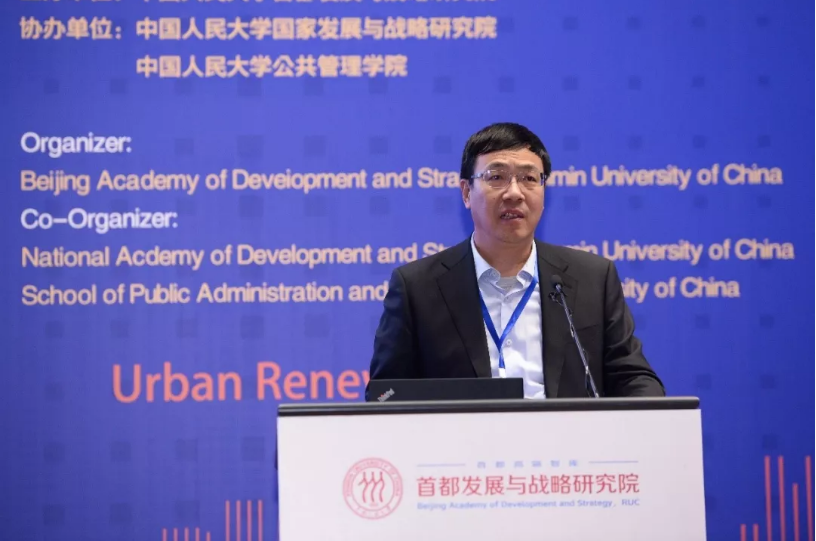
Professor Yan Jinming, Director of Office of Research, RUC and Executive Director of the National Academy of Development and Strategy, presided over the continuing "Scholars’ Forum I: metropolitan governance and regional collaboration".
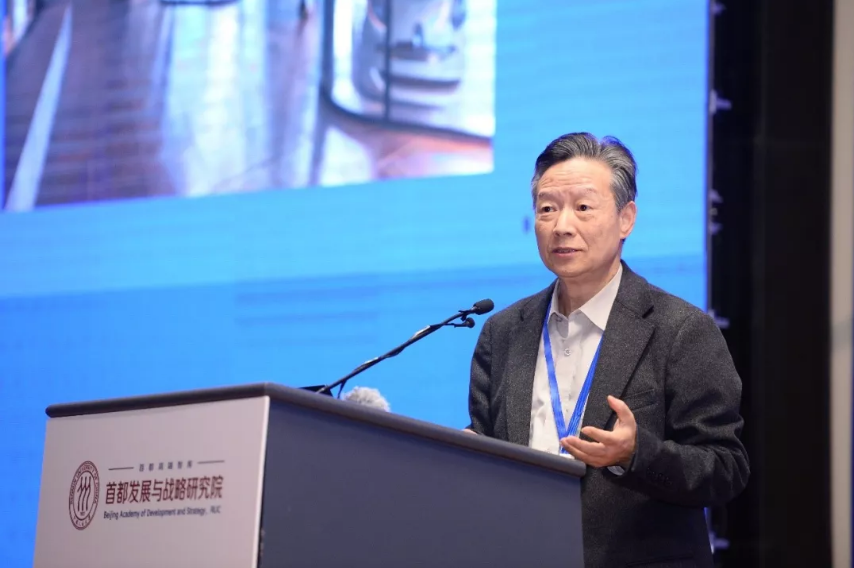
Chou Baoxing, Consultant of the State Council and former Deputy Minister of the Ministry of Housing and Urban-Rural Development, shared three modes of an ecological new city. Mode A, technology-based, is to pursue zero emission with high investment, high technology innovation and high indicators. Mode B is featured as "reverse urbanization, external implantation and passive adaptation". However, this mode of low-carbon ecological development is disconnected with local architectural culture and living customs and ignores localized low-carbon building materials and traditional wisdom, retrogressing to farming lifestyle and away from urban civilization. Local people do not understand or support the externally implanted "low carbon system". Model C is featured as "appropriate construction cost, self-sustainability, and having possibility of promotion and replication". It also embodies three respects, i.e. for local natural ecological environment, for local history and culture, and for the interests of ordinary people.
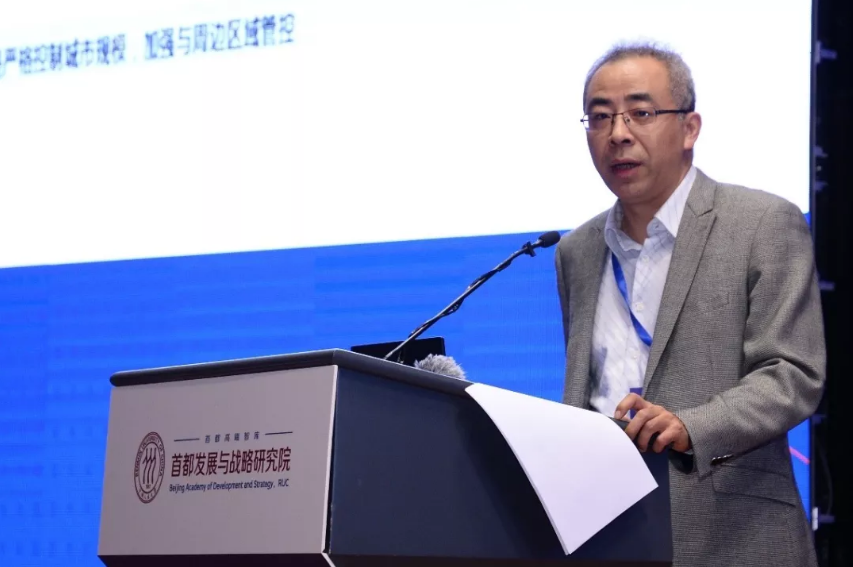
Xia Cheng, Deputy Director of the Regional Development Strategy Center, National Development and Reform Commission and Deputy Director of the Institute of Spatial Planning & Regional Economy, delivered a speech on the theme of "Beijing-Tianjin-Hebei Coordinated Development and Capital Planning and Construction". When talking about Beijing's planning and construction, he said that it is necessary to grasp the strategic orientation, spatial pattern, factors allocation, adhere to the overall planning of urban and rural areas, implement the integration of multiple regulations, and form an integrated planning and blueprint so as to move towards building a world-class harmonious and livable city with the core functions improvement of the capital as a breakthrough. Centered on this task, related work should be carried out from at least five aspects, i.e. further relieving Beijing's non-capital functions and optimizing the city's functions and spatial layout; further strengthening the "four centers" urban strategic orientation; giving full play to Beijing's leading role and building a capital-centered world-class urban cluster; efforts should be made to solve the "metropolis disease", including public transport priority, housing reform, environmental improvement and municipal infrastructure; strictly control the size of the city and strengthen the spatial control along the route.
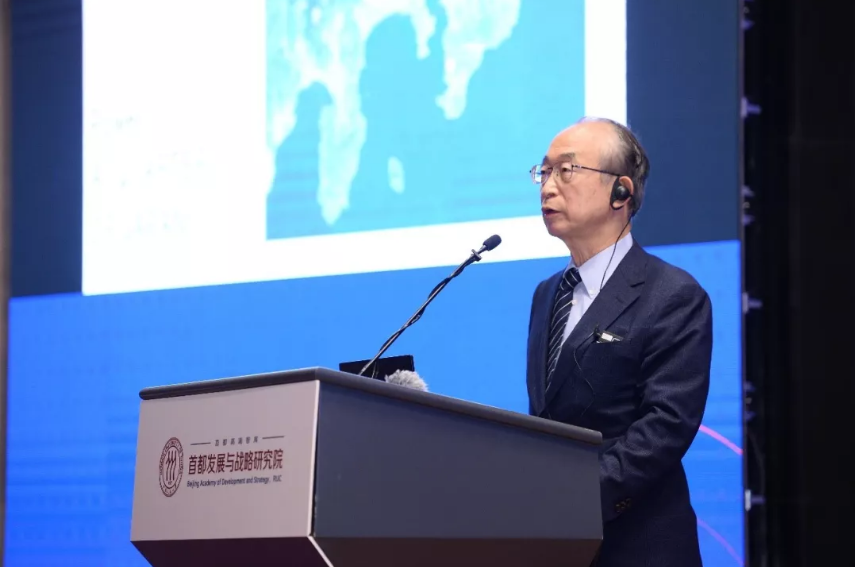
Mr. Yasushi Aoyama, former Deputy Mayor of Tokyo, Japan, Professor of Meiji University believes that the urban development under the influence of globalization is to change constantly. Efficiency was the most important in the 20th century, while urban comfort is very important in the 21st century. In Japan, people's core focus has shifted from urban planning to community development. In Europe, "spatial planning" has replaced the traditional "land use planning". He said that a comprehensive approach should be adopted in city planning to integrate people's welfare, education, economy and environment. Urban planning is a comprehensive planning all over the world.
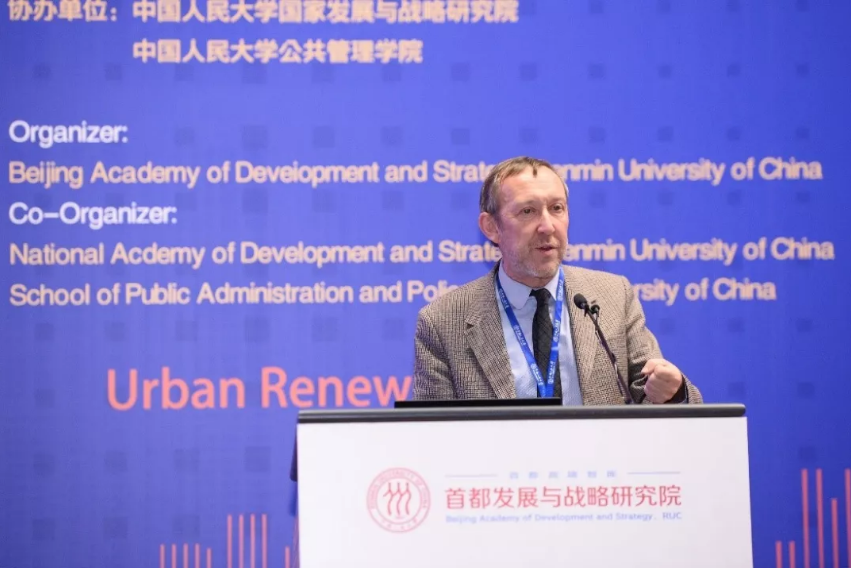
Patric LeGale, Dean and Professor of the City College, Science Po, gave a speech on the theme of "Greater Paris Urban Governance—Based on Vision of Comparation". He believes that the limitation of many cities lies in places where policy regulations cannot be reached, which will lead to serious urban failure. Nowadays, more and more resources are gathered in big cities, such as projects, funds, experts, etc., resulting in many contradictions. On the one hand, the metropolis has now become a political center, with its own rules of game and sometimes completely separated from national politics. On the other hand, it is likely to be inconsistent with the interests of the nation, which is crucial for understanding urban governance in the future.
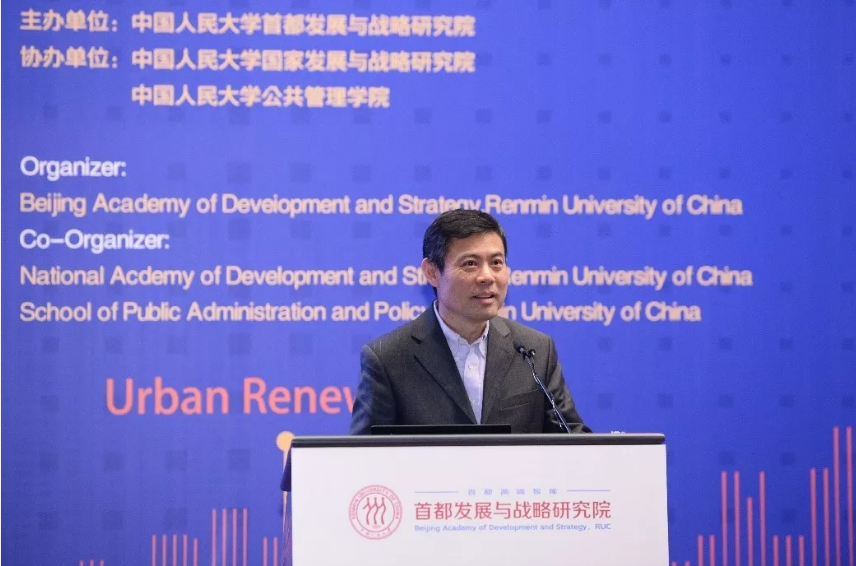
Wang Kai, Vice President of the China Academy of Urban Planning and Design, believes that it is necessary to explore a new mode for the organic renewal of old Beijing, focusing on people-to-people communication and connecting people. General Secretary Xi Jinping once pointed out: "We should properly handle the relationship between protection and development, pay attention to the continuation of the historical context of the city, and treat the old buildings in the city with the same respect and kindness as the old people." Wang Kai said that we must stick to the people-centered idea to provide people with leisure, fitness and entertainment places, making cities a paradise for people to live and work in. "40 years of reform and opening up is the first half of China's urbanization and we stressed more on “object”. In the second half of China's urbanization, we should put more emphasis on "people".
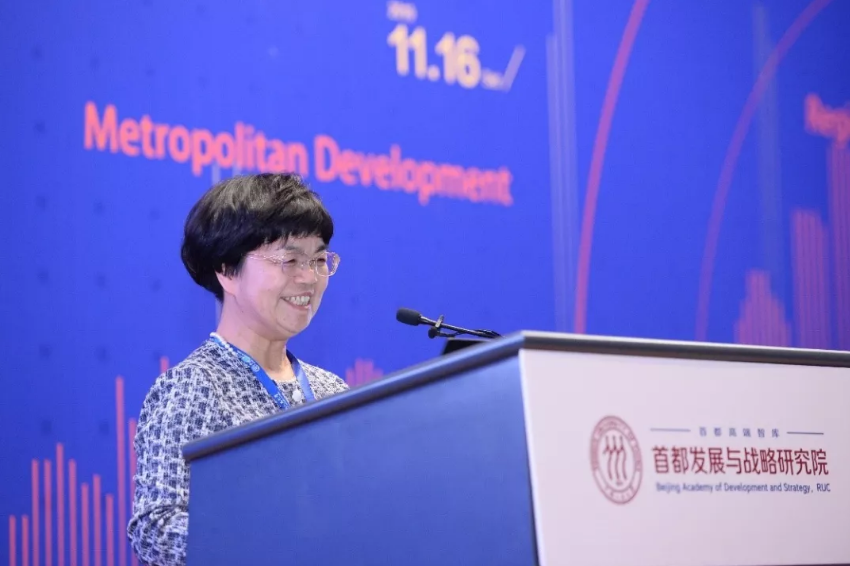
Professor Ye Yumin from the School of Public Administration and Policy, RUC pointed out that the new dual structure with urban villages as the main space carrier is a stubborn problem in the governance of developed cities in China. Urban villages in big cities have the common characteristics of "Three Lows and Two Highs": "Three Lows" refers to low land use efficiency, low level of industrial technology and low income of residents. "Two Highs" refers to high crime rate and high proportion of unlicensed construction. She believes that there are two reasons for the birth of the structure, one is the difficult problem of spatial governance of urban villages, the other is the social problems caused by the large number of migrants gathered in the villages. The overlapping of these two problems in the urban villages is the direct source of the birth of the new dual structure. She believes that the linkage solution to the "twin problem" includes two aspects: one is to incorporate the housing needs of non-registered population into the urban village renewal plan; the second is to improve the efficiency of the renewal of urban villages in four key areas, including adhering to the management to governance; adhering to the comprehensive rule of law; adhering to the use of the market to allocate elements; and adhering to systematic thinking. She also stressed that the new dual structure is the strategic task of national governance in the new era. It is the inevitable way not only for the capital, but also for China's modernization.
Scholars’ Forum II

The following "Scholars’ Forum II: New City Development and Planning and Construction" and "Scholars’ Forum III: Old City Renewal and Social Reconstruction" were presided over by Professor Han Sunsheng, Vice President of the Faculty of Architecture, Building and Planning of Melbourne University.
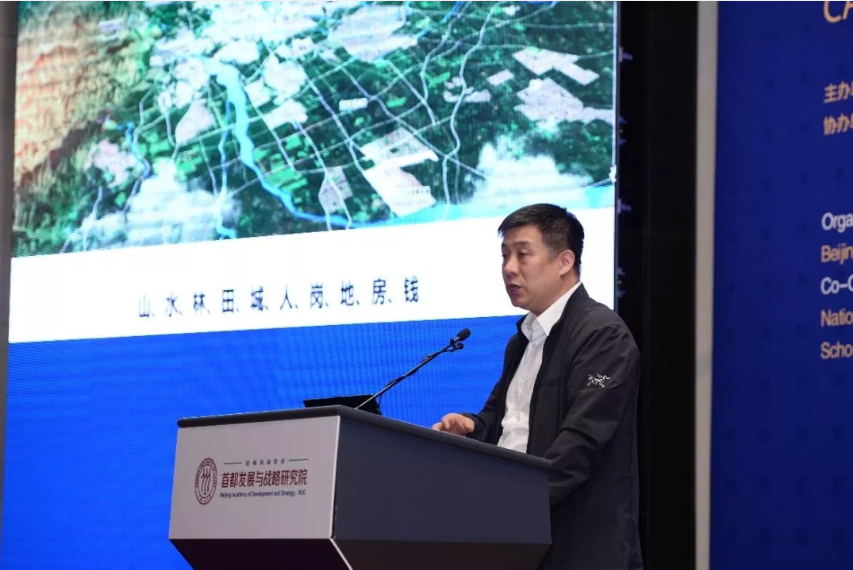
The report of Shi Xiaodong, Vice President of Beijing Municipal Institute of City Planning & Design discussed the governance logic of the capital space in the new era, that is, a composite framework of time, space and governance. He pointed out that time is the key node and core framework for shaping the capital space, and made a detailed explanation of eight spatial circles (core area, central city, sub-center, multi-point area, ecological conservation area, metropolitan area, capital circle and urban cluster) and eight governance dimensions (comprehensive governance, national governance, source governance, reform governance, structural governance, collaborative governance, legal governance and system governance).
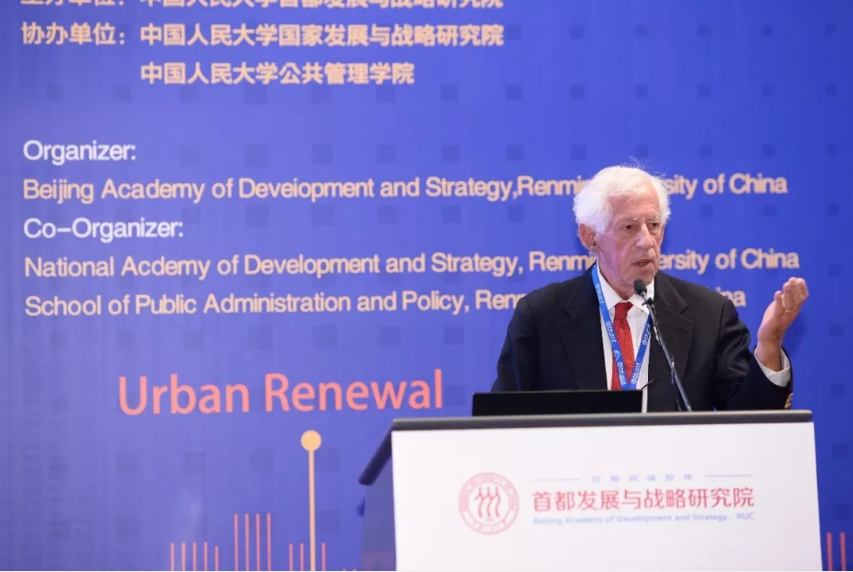
Professor Richard LeGates of San Francisco State University gave a speech entitled "Planning Beijing-Based on Vision of Comparison" and compared and summarized the similarities and differences between Beijing and other cities, including Washington through several charts. Professor Richard LeGates listed detailed data, analyzed the great changes in Beijing's population density, population structure, transportation connectivity, and de-centralization mode, and called on to think globally and act locally.

In his speech "Reform and Innovation, Leading the Construction of China's Metropolitan Region", Professor Yin Zhi, Executive Vice President of Institute for China Sustainable Urbanization, Tsinghua University, made an in-depth analysis of the background behind the concept of "Metropolitan Region", believing that the concept conforms to the trend of urbanization, i.e. gathering in metropolitan areas, filling the last piece of the puzzle of China's urbanization strategy, is a key area and breakthrough for deepening the reform in an all-round way, and an important starting point for promoting high-quality urbanization. He proposed that the degree of contact should be taken as the core index for the evaluation of metropolitan areas in terms of the economics, population and transport.

Professor Detlef Kammeier of Asian Institute of Technology (AIT) divided the capital cities into three types: very large economic and political center cities, small political center cities, and Brussels and Strasbourg, capitals of the European Union. He also described Thailand’s history of capital moving in his speech, noting that the performance of the current capital Bangkok is satisfactory and there is no need to move the capital, even though the continuous reestablishment of capital has given a great impetus to the development of Thailand.

Professor Li Wenzhao, Associate Dean of BADS, RUC, delivered a report entitled “Capital Governance Innovation and Development in the New Era: A Perspective of Interface Governance Theory”. Starting from the discrepancy between the ubiquitous governance and the insufficient concepts of governance, he put forward the theory and practice about the inclusion of diversity from the perspective of interface governance, based on the studies of Herbert A. Simon. He explained the concept of “interface” from vertical and horizontal dimensions, taking the integrated development of Beijing-Tianjin-Hebei region, physical system, cultural system and other urban subsystems as examples. He further pointed out that we need to go beyond the single-interface governance and build a multi-interface capital governance system.
Scholars’ Forum III
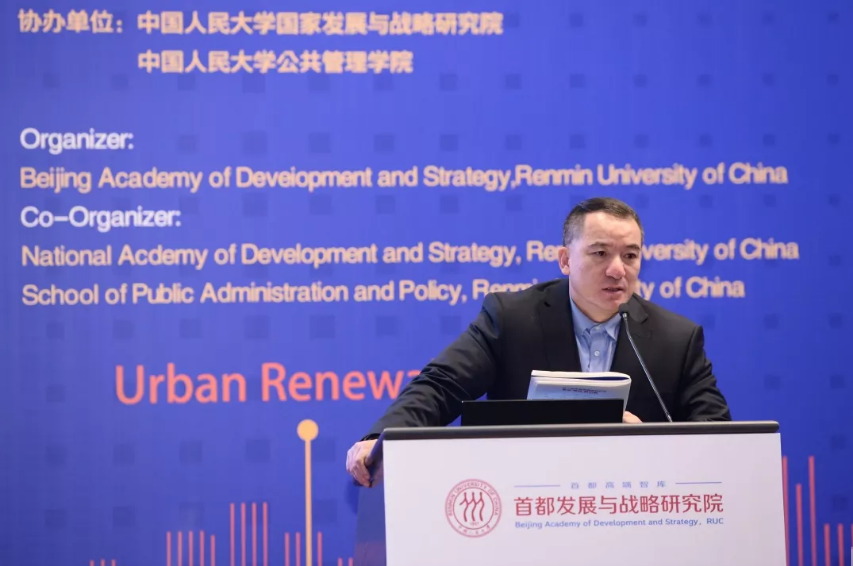
“Scholars’ Forum III: Urban Renewal and Social Reconstruction” was presided over by Professor Zhang Jie, Associate Dean of BADS, RUC.

Professor Chris Hamnett of King’s College London (KCL), who is also the academician of British Academy, delivered the keynote report “Urban Renewal and Gentrification in London”. Professor Hamnett greeted the participants there enthusiastically in Chinese. Taking time as horizontal axis and London as study object, he reviewed the major renovation projects over the past 30 years in his report, such as those in East End and London Docklands, and said that he was working with experts and scholars of RUC on issues related to transformation of land use in Beijing Lane.
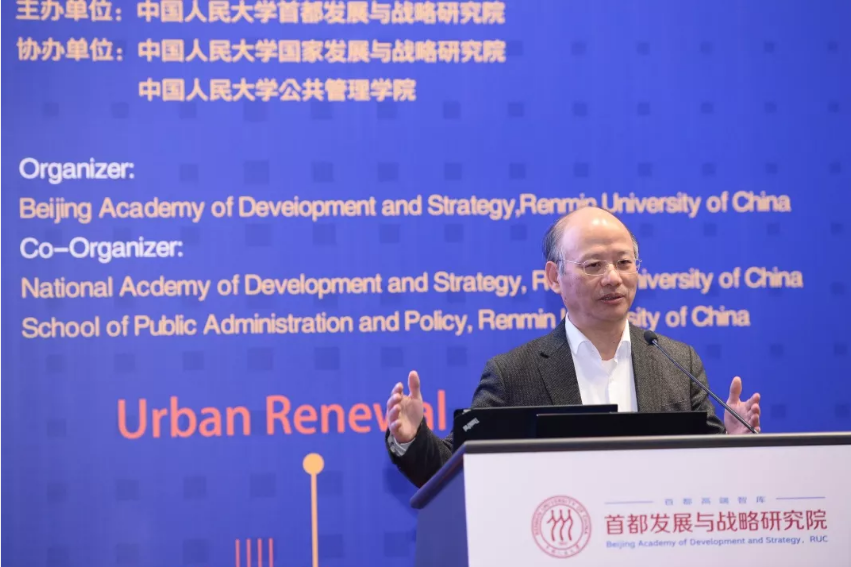
Professor Yang Kaizhong, President of Regional Science Association of China, Deputy Director of Institute for Urban and Environmental Studies Chinese Academy of Social Sciences, Peking University, delivered a speech on “implementing a competitively neutral metropolitanization strategy”. He elaborated on the two important characteristics of urbanization strategy, i.e. urbanization and coordinated development of large, medium and small cities, and reviewed and summarized relevant problems arising from practice in different regions. Finally, he put forward three constructive measures for the development of metropolitan regions, i.e. defining a reasonable range of metropolitan region, insisting on competitive neutrality and forming an adaptive system and mechanism.
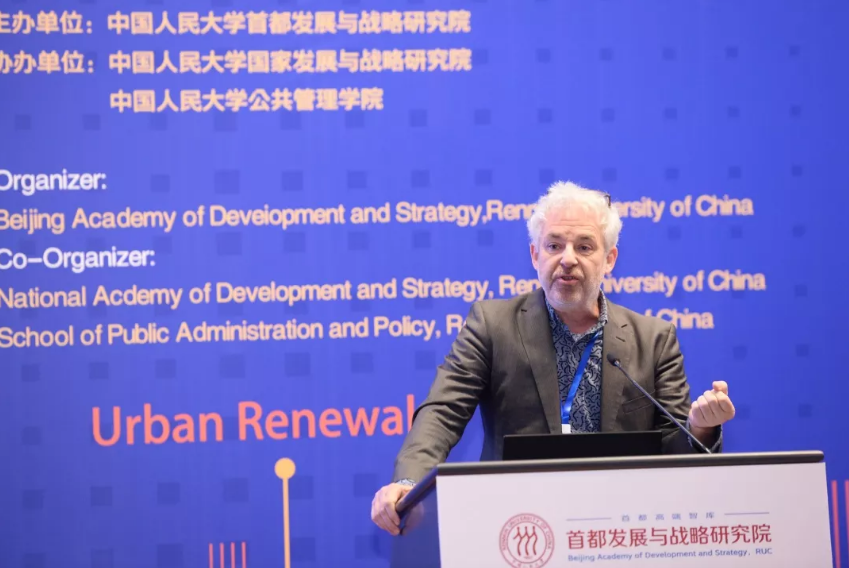
Mr. Gert de Roo, Professor of University of Groningen and former President of Association of European Schools of Planning (AESOP) delivered relevant speech, with the perspective shifted from “city development” to “collective action and public governance”. He quoted President Xi Jinping's point of view on city planning: "City is the city of the people and benefits the people", and noted that this point coincides with his research ideas of "self-governance" and "collective action".
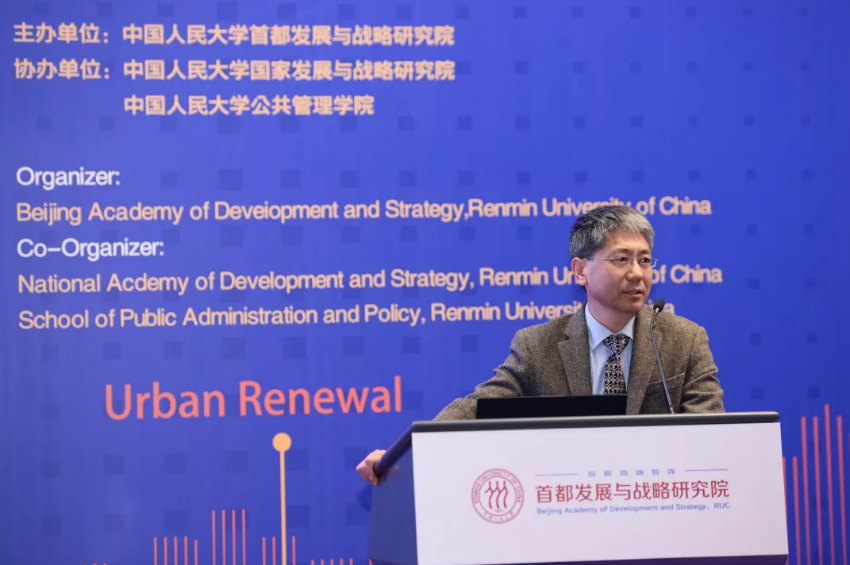
Based on the urban development and renewal of Canberra, capital of Australia, Mr. Han Sun Sheng, Professor of University of Melbourne and Associate Dean of ABP College, made a detailed introduction and analysis on Canberra's urban form, feasibility of renewal, the role played by the government in the building process and the options exploration of the Commonwealth of Australia.
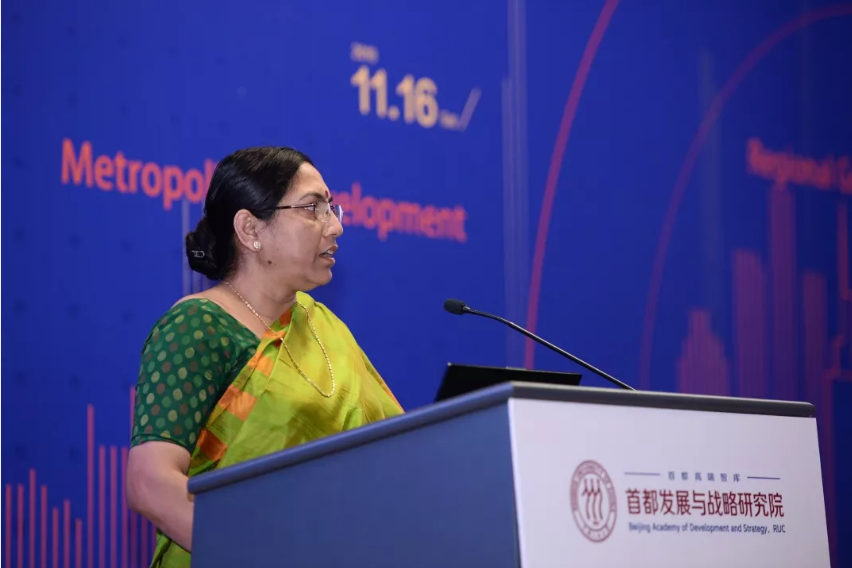
Ms. Debolina Kundu, Director of India’s National Research Center for Urban Affairs and Editor-in-Chief of EUA, shared research results on “urban problem and public governance”. What she shared was the outcome of a previous scientific research project lasting for four years, which was jointly participated by personnel and experts from eight countries and was supported by UK Research and Innovation and other organizations. Ms. Debolina Kundu reported on the urban problem and public governance of New Delhi from the macro and micro levels respectively.

Professor Yao Yongling of School of Applied Economics, RUC, delivered a keynote speech entitled “Where is the Bottleneck of the Metropolitan Region?” She introduced and analyzed the development of metropolitan regions in New York and Tokyo and made an empirical investigation and research on the current metropolitan regions in China with the Beijing-Tianjin-Hebei region as an example. Finally, she came to the conclusion that the biggest bottlenecks of metropolitan regions lie in administrative division and public transport.
Roundtable Forum
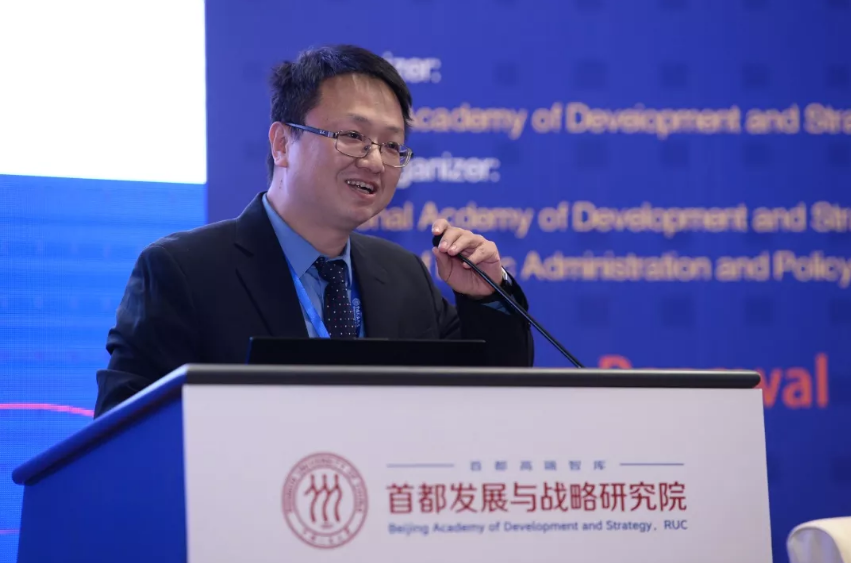
After the Scholars’ Forum, the Roundtable Forum was presided over by Professor Qin Bo of School of Public Administration and Policy, RUC, with the theme of “capital city governance—comparison and reference”.
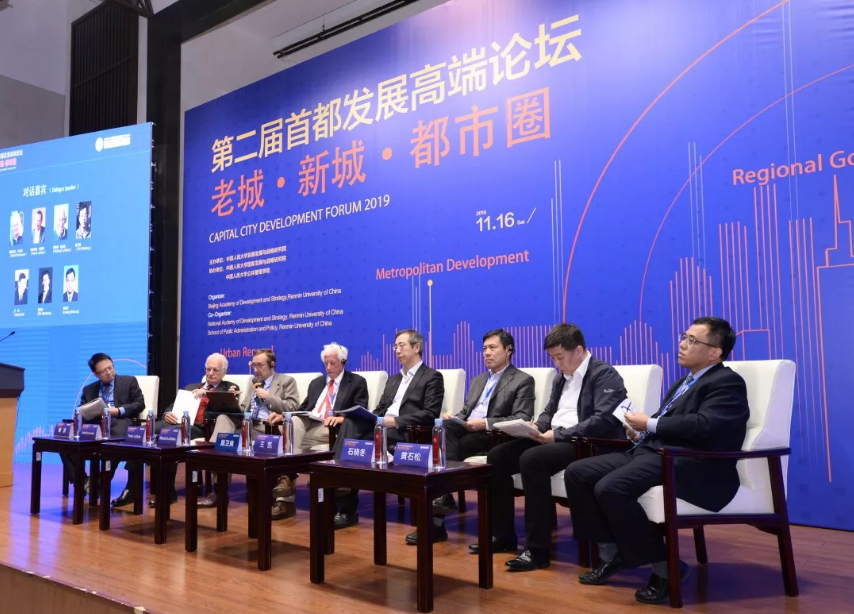
Three scholars from Germany, France and the United States made dialogues with four distinguished Chinese guests on the spot. The three scholars were Detlef Kammeier, Professor of Asian Institute of Technology and former Vice President of International Society of City and Regional Planners; Patric LeGale, Dean and Professor of City School, Science Po; and Richard LeGates, Professor of University of San Francisco and Editor-in-Chief of the City Reader. The four Chinese guests were Shi Weiliang, Chief Planner of Beijing Municipal Commission of Planning and Natural Resources, President of Beijing Municipal Institute of City Planning & Design, Vice President of Urban Planning Society of China, and Professorate Senior Engineer; Wang Kai, Vice President of China Academy of Urban Planning & Design; Shi Xiaodong, Vice President of Beijing Municipal Institute of City Planning & Design and Professorate Senior Engineer; and Huang Shisong, Researcher of BADS, RUC and Special Researcher of Beijing Municipal Research Center of Xi Jinping Thought on Socialism with Chinese Characteristics for a New Era.
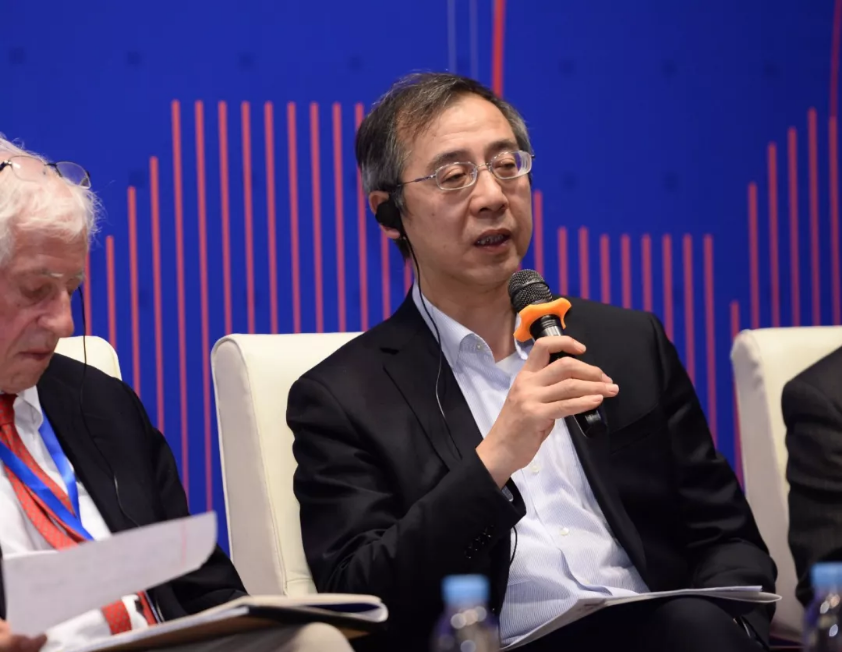
Mr. Shi Weiliang made a speech.

Mr. Huang Shisong made a speech.
The seven scholars and guests expressed their own opinions, shared their research results and unique insights on the development and governance of capital, and had interaction and discussion with the audience on the spot, presenting a high-level, large-scale, fruitful and influential academic grand gathering.